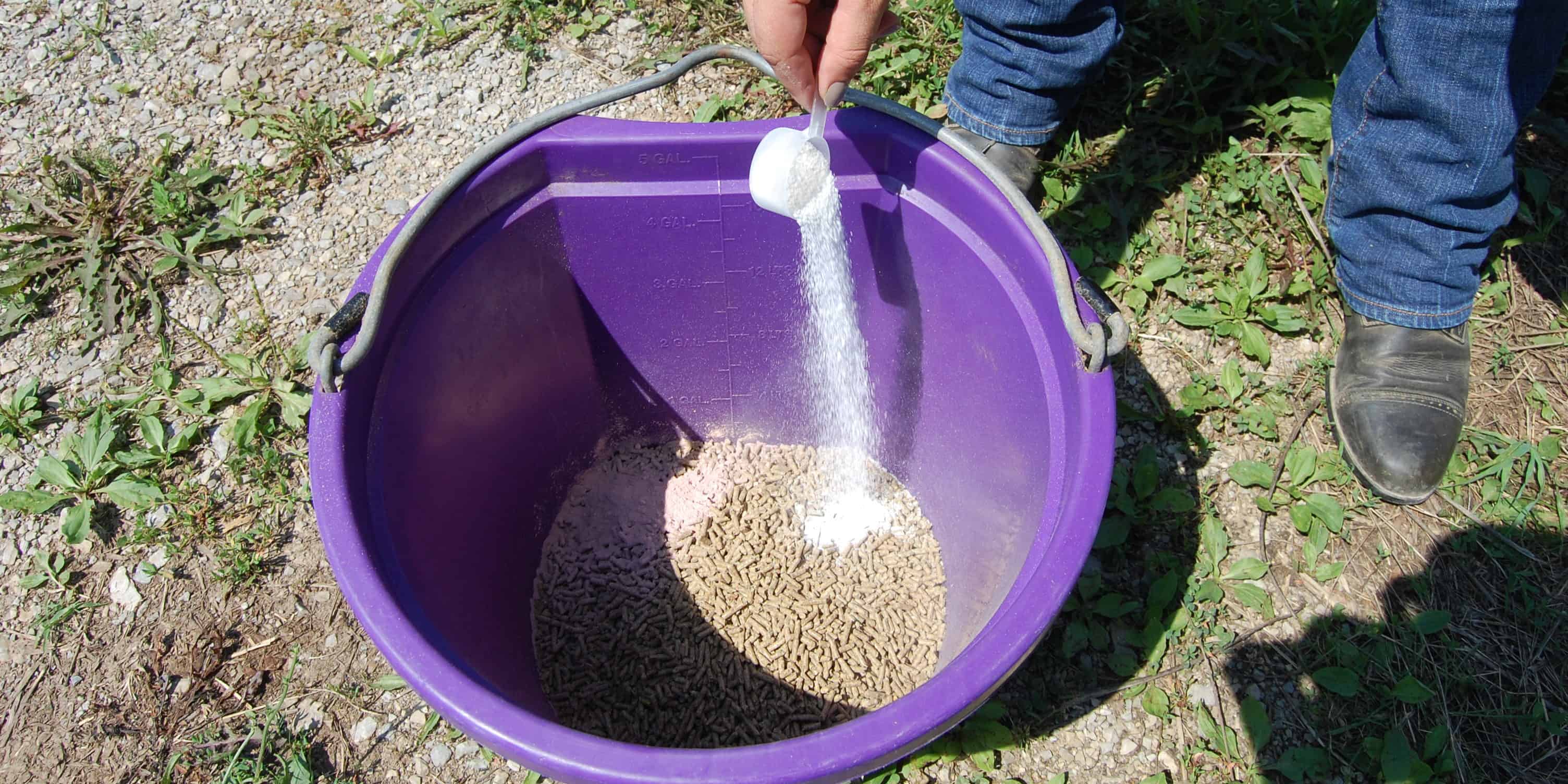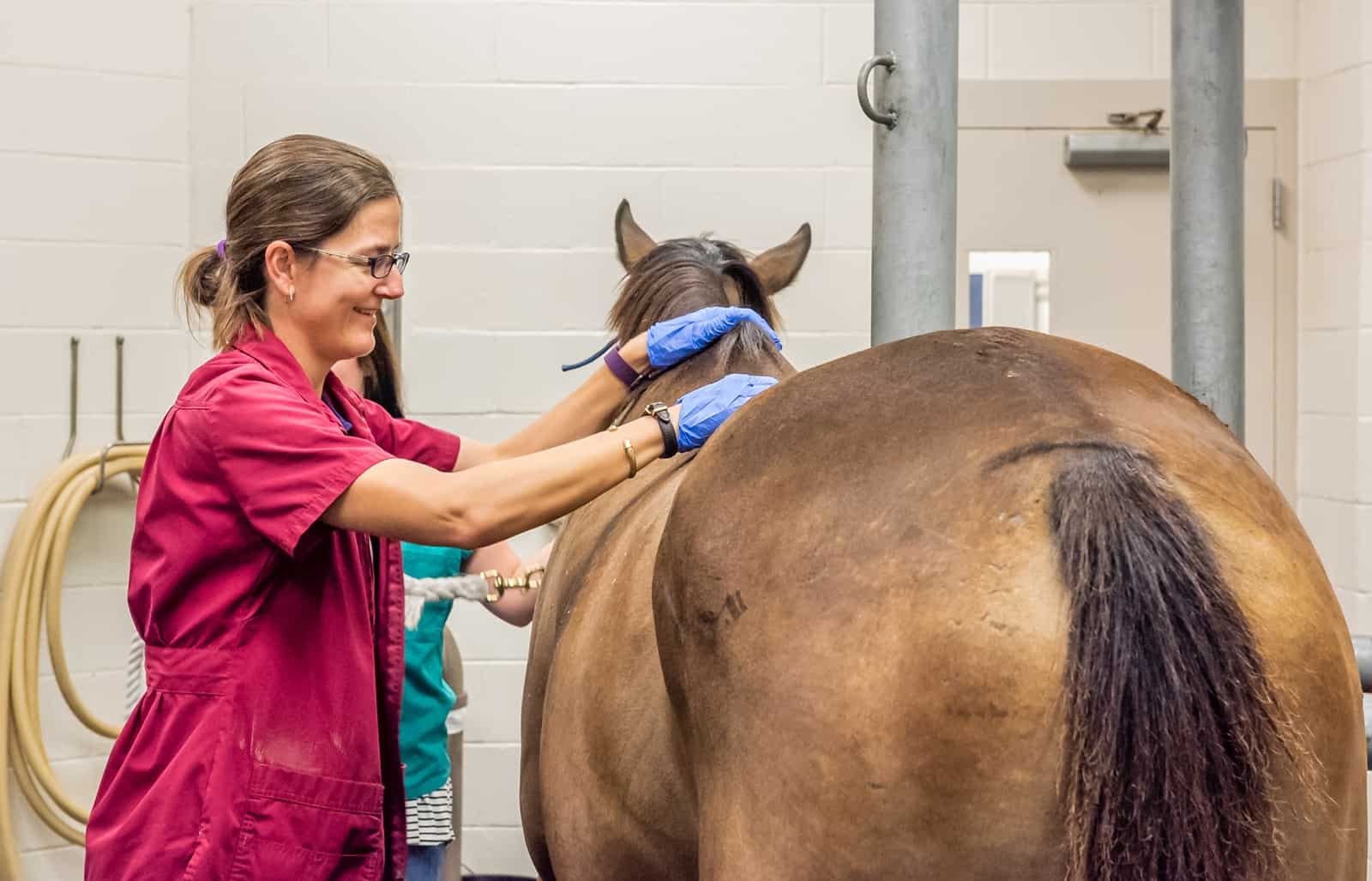Nutrients for Horses: What’s Trending?

Learn how to derive the most benefit from popular equine nutritional supplements
Over the past 20 years the nutritional supplement industry has exploded, resulting in a plethora of powders, pills, pastes, and pellets labeled with claims to support equine health in varied ways. Published studies surveying horse owners together with an internet search of “equine nutritional supplements” show some of the most popular:
- Antioxidants;
- Hoof and coat supplements containing omega-3 fatty acids, proteins, biotin, and minerals;
- Gastrointestinal supplements for gastric ulcers and hindgut health;
- Pre- and probiotics;
- Muscle builders;
- Calming supplements;
- Products for cough, allergies, and respiratory health;
- Joint and tendon supplements; and
- Electrolytes.
Study results indicate that electrolytes and joint supplements reign supreme, serving as the most widely used nutritional products for horses in both the United States and United Kingdom.
“Discipline also appears to dictate which supplements ‘should’ be used,” adds Sarah Freeman, BVetMed, PhD, professor of veterinary surgery at the University of Nottingham’s School of Veterinary Medicine and Science, in the U.K.
For example, Freeman says that in her experience electrolytes are popular in eventing, whereas behavior supplements are commonly used in dressage.
Carey Williams, PhD, an equine extension specialist at Rutgers University, in New Brunswick, New Jersey, and Amy Burk, MS, PhD, professor and extension horse specialist at the University of Maryland, in College Park, surveyed top-level event riders over a two-year period. In their 2012 study they relayed that electrolytes were the type of oral supplement administered most, followed by salt and joint supplements. The average number of supplements owners fed competing horses on a regular basis was approximately four.
Considering nutritional supplements’ popularity in the face of age-old questions regarding their efficacy and safety, we’ll review some of the trendy nutritional supplements in the equine industry, the rationale for their administration, and scientific data supporting their use.
One of the main messages Freeman says she’d like owners to keep in mind during this discussion is that horses don’t break down products in their gastrointestinal system like other species, such as humans and dogs, do.
“This means that you can’t just take evidence from human literature and assume it will then work in the horse,” she says. “Products that work in another species may not—and we know some do not—work in the horse.”
4 Popular Products
Resveratrol
This compound can be isolated from more than 70 plant species, including cranberries and grapes. Proponents say resveratrol offers an array of health benefits for humans and animals as a result of its anti-inflammatory and antioxidant properties. Marketing materials suggest that resveratrol could reduce the use of non-steroidal anti-inflammatory drugs such as phenylbutazone (Bute), which in some circumstances causes gastrointestinal upset/ulceration and kidney problems in horses.
Examples of human conditions resveratrol might benefit include cardiovascular disease, cancer (due to its anti-tumor activity), diabetes, obesity, metabolic syndrome, hypertension, stroke, neurodegeneration, age-related diseases, and inflammatory diseases.
Considering this “grocery list” of conditions that resveratrol appears to be useful for in humans, the evidence supporting its use is sparse and inconsistent. Further, researchers studying humans state, “… resveratrol application is still … a major challenge for the pharmaceutical industry, due to its poor solubility and bioavailability, as well as adverse effects” (Salehi B et al., 2018).

A handful of resveratrol studies conducted in horses have been published, as outlined here by Kirstie Pickles, BVMS, MSc, PhD, CertEM(IntMed), Dipl. ECEIM, MRCVS, of Chine House Veterinary Hospital, in Sileby, U.K.
1. Client-owned performance horses with lameness localized to the lower hock joints received triamcinolone (a corticosteroid anti-inflammatory drug) injections in both hocks. Researchers (Watts AE et al., 2016) then divided the horses into two groups; one received oral resveratrol for four months and the other received a placebo and served as the control. Based on owner-reported responses to treatment, more horses in the resveratrol group than controls were less lame after four months. That said, the researchers noted no difference between subjective lameness scores in the two groups.
2. Resveratrol had an anti-inflammatory effect on cultured equine cartilage cells in a lab at low doses. As they increased the resveratrol dose, researchers (Ryan DJ et al., 2017) noted pro-inflammatory and even cytotoxic (cell-killing) effects. “These findings suggest that resveratrol could have a narrow therapeutic index of safety,” says Pickles.
3. To find an alternative or supplemental method of controlling inflammation in horses, Missouri researchers (Martin L et al., 2020) collected blood samples before and three weeks after supplementing horses with either a commercially available resveratrol product or a placebo. They analyzed those samples for inflammatory mediators and other measures of inflammation and noted no changes in any of the parameters.
“This study shows that the particular commercially available product was no use but that resveratrol itself may still be worth it given that other studies show it could be beneficial,” Pickles says.
Grapeseed extract (GSE)
Grapeseed extract contains compounds believed to offer health benefits. Examples include polyphenolic compounds (in addition to resveratrol), proanthocyanidins, anthocyanins, and flavonoids that together apparently exert both antioxidant and anti-inflammatory effects in animals.
Few researchers have evaluated grapeseed extract in horses. In a 2009 study JA Davies et al. looked at grapeseed extract’s effect on “general health, intake, and digestion.” They found that GSE “could have important implications for the prevention of hindgut acidosis.” Pickles cautions that the study included only four horses and lacked a control group.
Coenzyme Q10
This ubiquitous molecule not only acts as an antioxidant but also plays an important role in energy production. It is the only known fat-soluble antioxidant that horses can synthesize themselves (all others must be derived from the diet). This dual-purpose supplement appears to be popular yet, again, has little scientific proof of efficacy.
In a 2013 study Bohar Topolovec M et al. found no association between coenzyme Q10 and total antioxidant capacity in horses, meaning the blood from supplemented and unsupplemented horses had the same antioxidant capabilities.
In a recent study, however, researchers in Dublin reported that coenzyme Q10 supplementation increased both circulating blood levels and muscle levels of the nutrient in horses—a result that could potentially translate into increased energy production. The research team administered a commercial coenzyme Q10 product to 19 untrained Thoroughbreds orally every day for nine weeks. Each horse acted as its own control, and not all horses responded to supplementation.
On the equine reproduction side, researchers (Carneiro JAM et al., 2018) assessed coenzyme Q10’s effect on semen samples collected from stallions with known “good” or “bad” freezing semen ability. “Stallions with bad semen freezing ability had improved sperm parameters for samples processed with extenders containing coenzyme Q10,” says Pickles.
Equine calming products (ECPs)
Horse owners frequently seek calming products for safe horse handling or competition purposes. In the September 2018 Journal of Equine Veterinary Science, a survey- based communication detailed that horse owners indicated they were willing to use ECPs without any knowledge of ingredients or scientific evidence of efficacy.
Further, owners who reported perceiving a benefit from their selected ECP were un- sure of how or why the product “worked.”
Williams lists ingredients frequently included in ECPs and their rationale for administration:
- Thiamine, also called vitamin B1, plays an important role in the breakdown and processing of carbohydrates, fats, and proteins. High-grain diets result in a greater thiamine requirement in horses, and thiamine-deficient animals might exhibit hyperirritability.
- Magnesium, widely referred to as the “anti-stress mineral,” helps relax nerves, relieve tension, aid digestion, activate enzymes important for protein and carbohydrate metabolism, and modulate the electrical potential across all cell membranes. Magnesium also helps nerve conduction, induces restful sleep, and purifies body tissues by combating acids, toxins, gases, and impurities and neutralizing poisons.
- Inositol, another water-soluable B vitamin, is used to treat depression in humans and potentially prevent neurologic disorders associated with diabetes.
- Tryptophan and other B vitamins are also proposed to calm nervous horses, reportedly via their neurotransmitting and nerve-conducting capabilities.
- Alpha-casozepine, a milk protein supplement, has calming properties in humans and animals. Veterinarians at the University of Pennsylvania conduct- ed studies in 2012 and 2014 showing that alpha-casozepine supplementation had beneficial effects on ponies and horses’ behavior, training, and tolerance to routine health procedures.
The list of products owners feed their horses hoping to use “functional foods” to derive health and performance benefits is vast and varied. Other products that appear to be popular at the moment include pre-and probiotics, pectin/lecithin combinations, sea buckthorn, green tea extracts, and turmeric together with its active ingredient curcumin.
Where to Find Reliable Information
Despite the widespread availability of information online—a lot of it questionable—research has revealed that most owners do seek information from their veterinarians when selecting nutritional supplements. For example, in a 2018 study Carroll HK et al. found that 77% of survey respondents actively sought nutritional information from veterinarians, followed by books/magazines, then other horse enthusiasts/friends/family. Less commonly, horse owners used social media, equine nutritionists, farriers and dental care providers, and feed companies as sources of information. They rarely consulted equine extension specialists.
In their study surveying top-level event riders on their feeding practices, Williams and Burk found that most riders sought nutritional advice first from their trainers and second from feed dealers. They also listed books, magazines, university faculty, and veterinarians as resources.
“Veterinarians are indeed a valuable source of information, much preferred to other outlets, but many don’t realize that most veterinarians only get one semester of nutrition in school,” says Williams. “Therefore, don’t discount the value of your local extension specialists. Some of us have PhDs in equine nutrition specifically, which gives us five-plus years of studying nothing but nutrition.”
Similarly, Freeman’s research group found that although surveyed owners rated veterinarians as their most trusted sources of information, most had chosen their most recent supplement based on another owner’s advice. She says she was most alarmed by the number of supplements some owners reported they used.
“There are concerns regarding using a variety of substances that could effectively counteract each other and issues with owners giving too much of a product containing a mixture of ingredients or too many different products,” Freeman says. “If people are using multiple supplements, they need to ask an expert to be certain they can be used together.”
Take-Home Message
Remember, horses don’t break down products in their gastrointestinal system the way we or other species do. So, do not extrapolate from findings in humans, expecting those products to work the same, if at all, in horses. What you can do is stay savvy about current equine nutrient trends so you can better gauge which products are effective and backed by science, and speak with a nutritionist, extension specialist, or vet for advice.

Written by:
Stacey Oke, DVM, MSc
Related Articles
Stay on top of the most recent Horse Health news with















